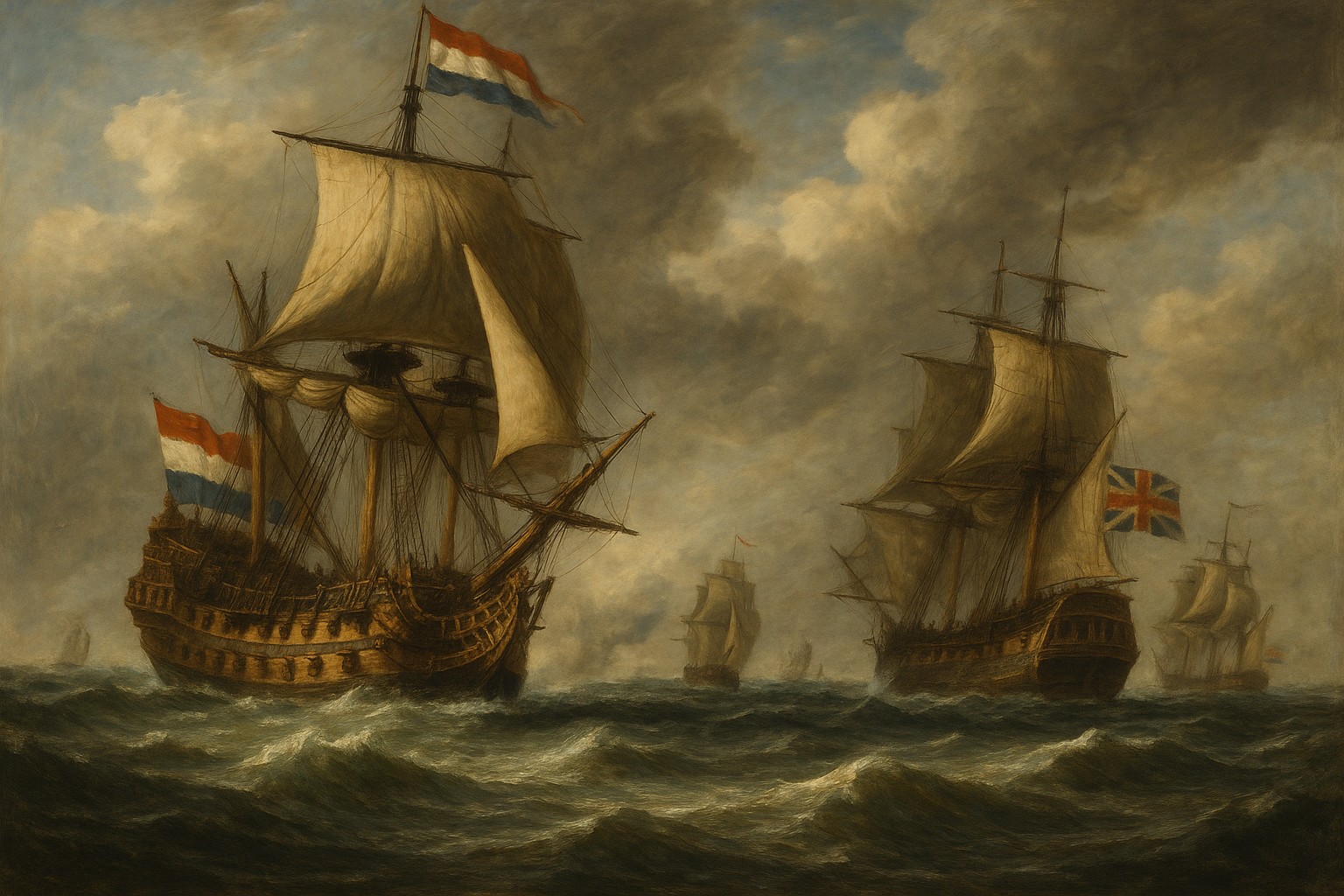The Ruin of the Dutch Empire
Corruption and political disasters of the Dutch East India Company

From giant of the seas to relic of history: the Dutch East India Company (VOC), the first multinational giant of global trade, built an empire on spices and fell under the weight of corruption, wars and revolutions. Its rise and fall reminds us that even the most powerful economic titans are destined to collapse - Image generated with AI
In the 17th century, the small state of Holland was a world giant, which had built its fortune on its aggressive colonialism in the Indian Ocean. From being a small country of fishermen and peasants, Holland became a commercial giant mainly thanks to the Vereenigde Oostindische Compagnie (VOC), the Dutch East India Company. Founded in 1602, it became a truly separate and autonomous entity from the state, which guaranteed its welfare and wealth.
The VOC could independently declare wars, sign treaties, establish colonies and maintain an army. It controlled strategic regions in Asia such as the Moluccas (in Indonesia), Ceylon and Batavia (today Jakarta), which allowed it to build up almost complete control of the spice trade in the Indian Ocean. Nutmeg, cloves and pepper made the fortune of Dutch merchants who, by gaining a global monopoly of these products, established what could be considered one of the world's first 'multinationals'. But this titan of trade crumbled and collapsed in little more than a century and a half, and in 1799 the company was finally dissolved. But how could such a machine fall apart?
The answer cannot be just one but a dramatic mixture of corruption, greed and political failures. One of the problems of the VOC from the beginning had to do with the strong autonomy of its officials from the headquarters in Amsterdam. The company officials in Asia acted almost like little kings, difficult to control, they directed many efforts towards their own enrichment through illicit means, such as smuggling and the black market. Some historians call this phenomenon ''private trade'', i.e. the illegal and private trade promoted by insufficiently supervised company employees. At the same time as the bureaucratic crisis (in the late 18th century), the Fourth Anglo-Dutch War broke out. The British triumphed and many Dutch trading fortresses were occupied, particularly in the Indian Ocean, which progressively became more and more subject to British control. Holland entered a deep internal crisis due to the loss of many colonies, but the coup de grace was delivered by Napoleon's troops who, a few years after the rapid occupation of Holland, led to the final dissolution of the company in 1799. The VOC had left a massive debt of 110 million guilders as a reminder that even the greatest trading powers are never eternal.
Pieter C. Emmer and Jos J.L. Gommans. The Dutch Overseas Empire, 1600–1800. Cambridge: Cambridge University Press, 2020.
Captivating History,The Dutch East India Company: A Captivating Guide to the First True Multinational Corporation and Its Impact on the Dutch War of Independence from Spain, 2019.
Toniatti Francesco
Master of Arts in International Relations - University of Leiden
Master of Arts in History and Oriental Studies - University of Bologna
Former History Teacher - International European School of Warsaw
2025-05-16
Francesco Toniatti
